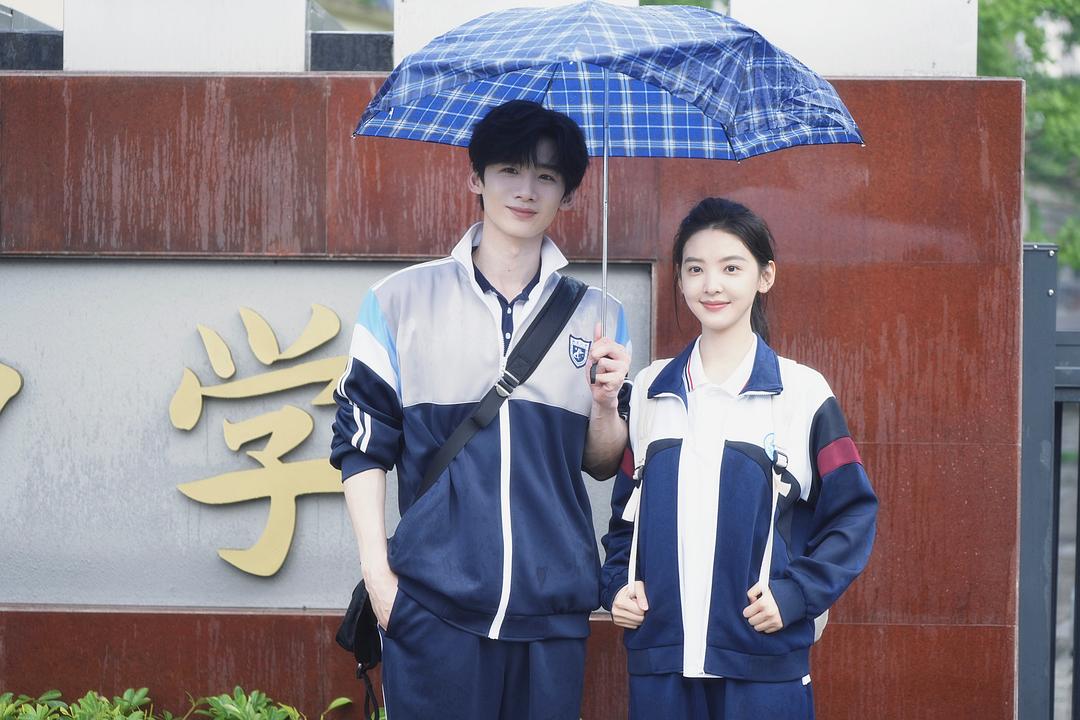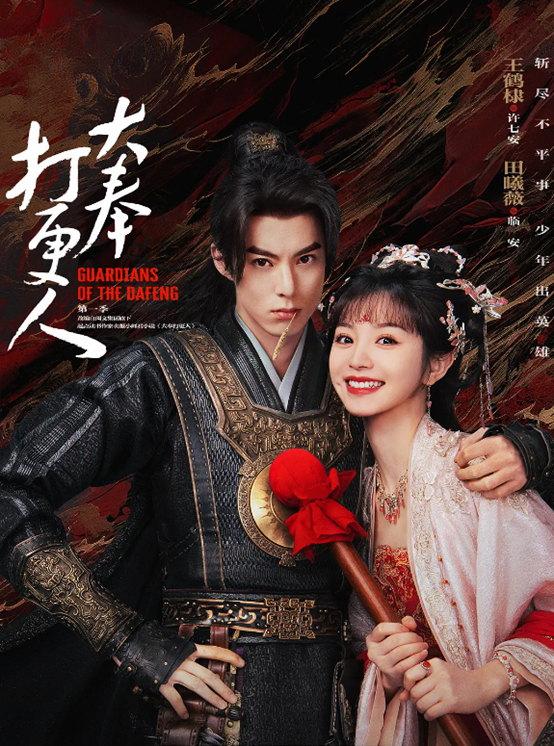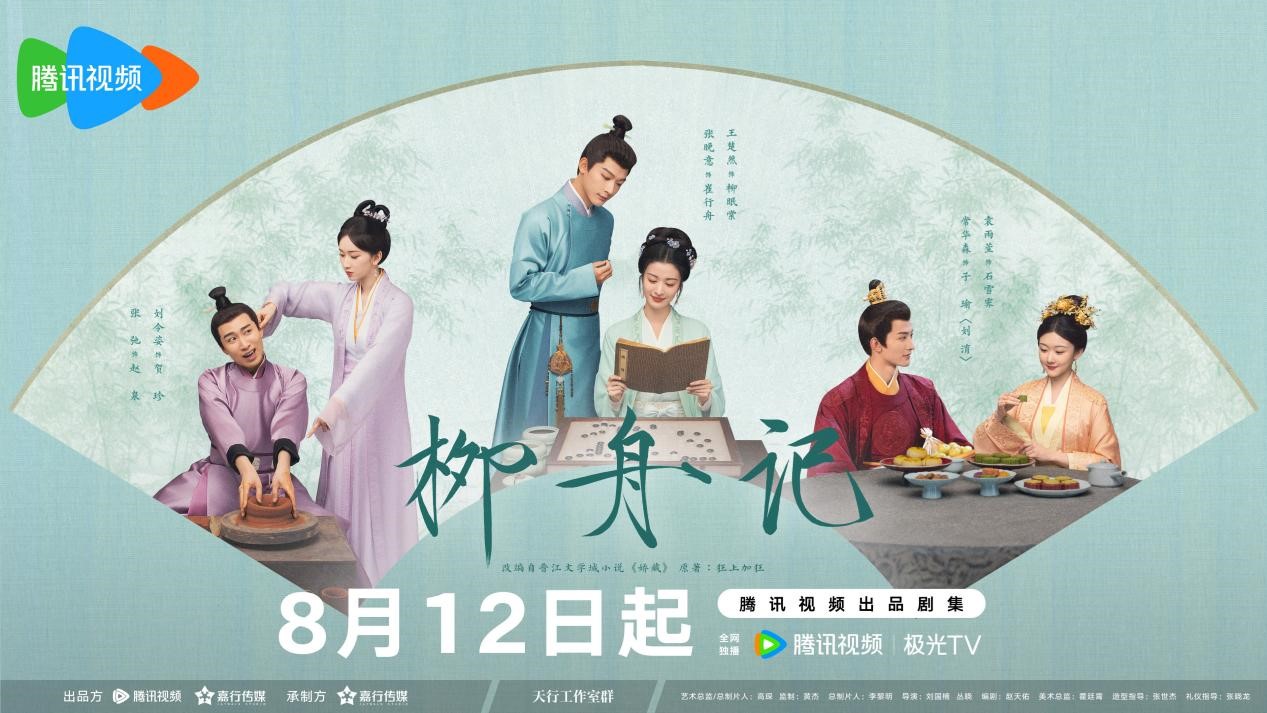
Editor's Note: Every month, there are web novels adapted into films and TV dramas, and discussions around these adaptations frequently arise. This monthly observation on web novel adaptations aims to extract a common issue from the adaptations of the month, allowing us to delve into the essence behind the phenomenon. This August, the focus is on the web novel adaptation 'The Chronicle of Liuzhou,' exploring how a relatively novel setting in web literature becomes dull once it is adapted for the screen.

Poster for 'The Chronicle of Liuzhou'
In previous years, there would usually be one or two hit period dramas during the summer season, helping a few young stars, who had a certain level of popularity, to gain a foothold in the industry. However, this year, that "tradition" was interrupted. There were no standout period dramas, nor did any new top stars emerge.
Originally, 'The Chronicle of Liuzhou' was highly anticipated by many. It is adapted from the popular novel 'Jiaocang,' which has attracted considerable attention in recent years, and stars Zhang Wanyi and Wang Churan. 'Jiaocang' is a web literature IP that has been well-regarded, and the production team invested heavily in creating this drama. From the heated search trends to the intensive promotion by various key opinion leaders after its release, it is clear that the platform and the team behind the drama were earnest in their marketing efforts. After 'Awakening Era,' Zhang Wanyi has continuously landed significant roles in various genres—historical, contemporary, period, military, and medical dramas—but many of these big productions have received mediocre responses; 'The Chronicle of Liuzhou' was seen as a chance for redemption...
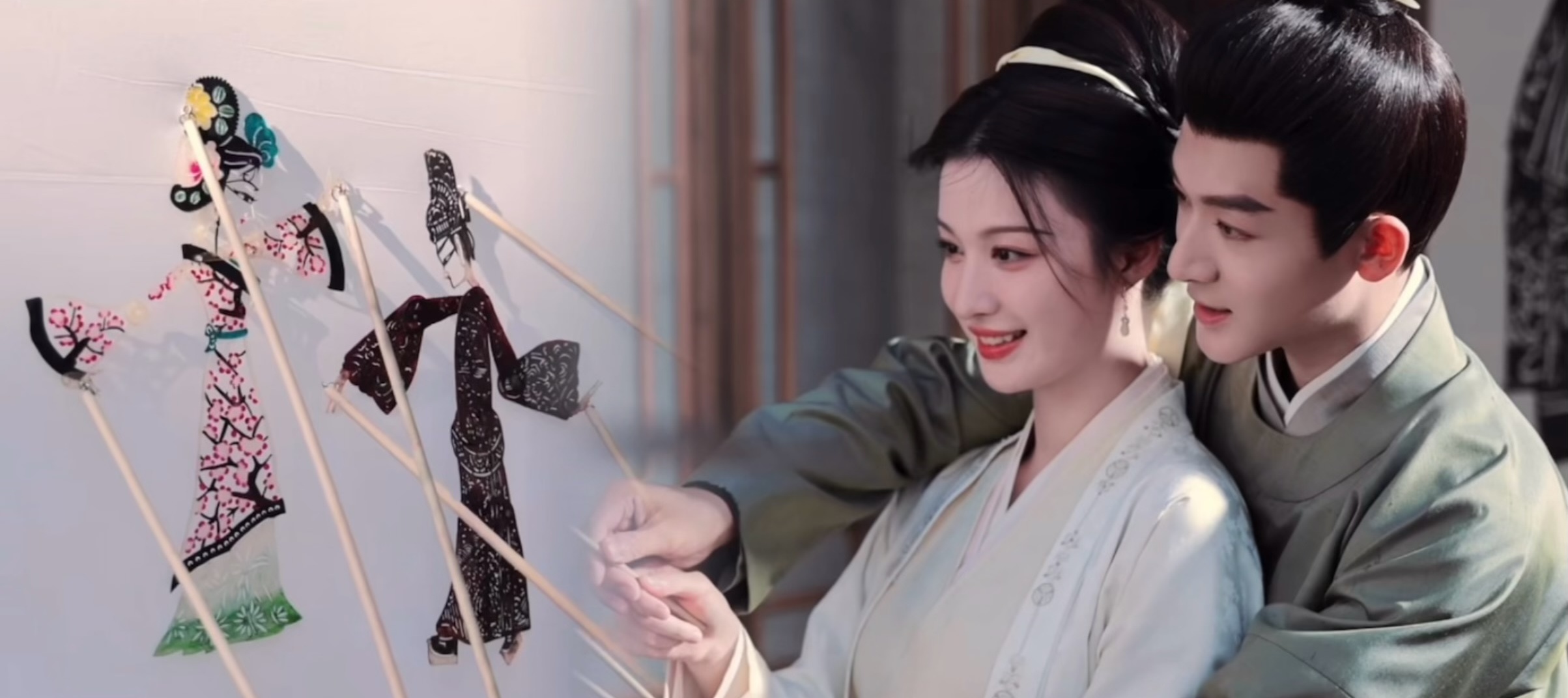
Still from 'The Chronicle of Liuzhou'
Unfortunately, from audience feedback to the effective streaming data from third-party sources, a harsh reality is reflected: 'The Chronicle of Liuzhou' has not resonated well with viewers. The daily effective view counts often rank outside the top three. It is not that the audience lacks discernment; rather, the series starkly illustrates a common flaw in the web novel adaptation process: a setting that initially seems novel becomes bland or even mediocre through the conveyor belt of period drama production.
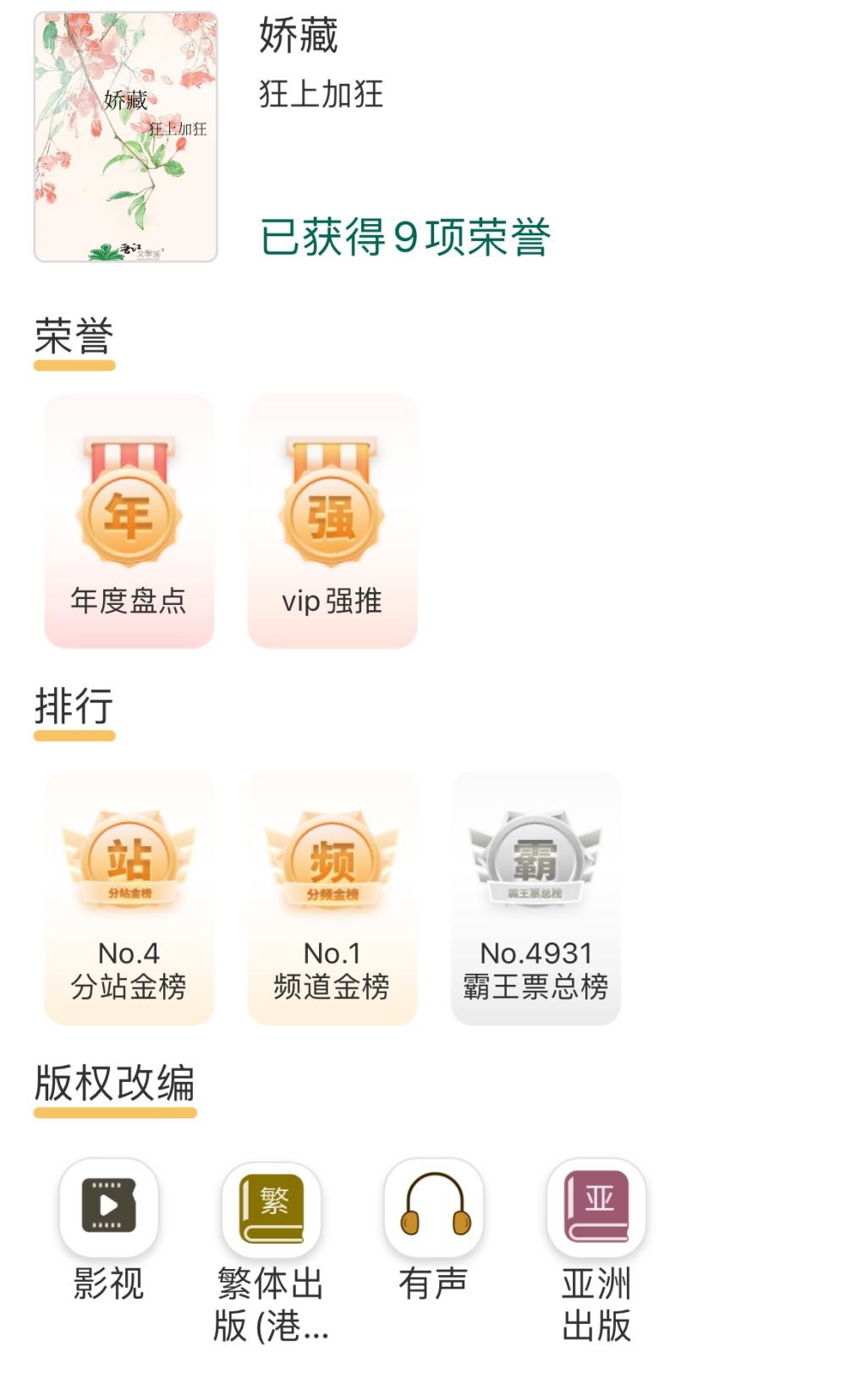
'Jiaocang' is considered a popular web novel
More than just 'Marriage Before Love'
'Jiaocang' tells the story of Liu Miantang, who is rescued by Prince Huaiyang, Cui Xingzhou, after suffering a serious injury. Upon waking and due to amnesia, she mistakenly believes that Cui Xingzhou is her husband. For a long time, Cui Xingzhou has been secretly investigating the bandit Lu Wen but has been unable to capture him. Upon learning that Liu Miantang is Lu Wen's beloved wife, he decides to take advantage of her amnesia, planning to use her to lure Lu Wen out and capture him.
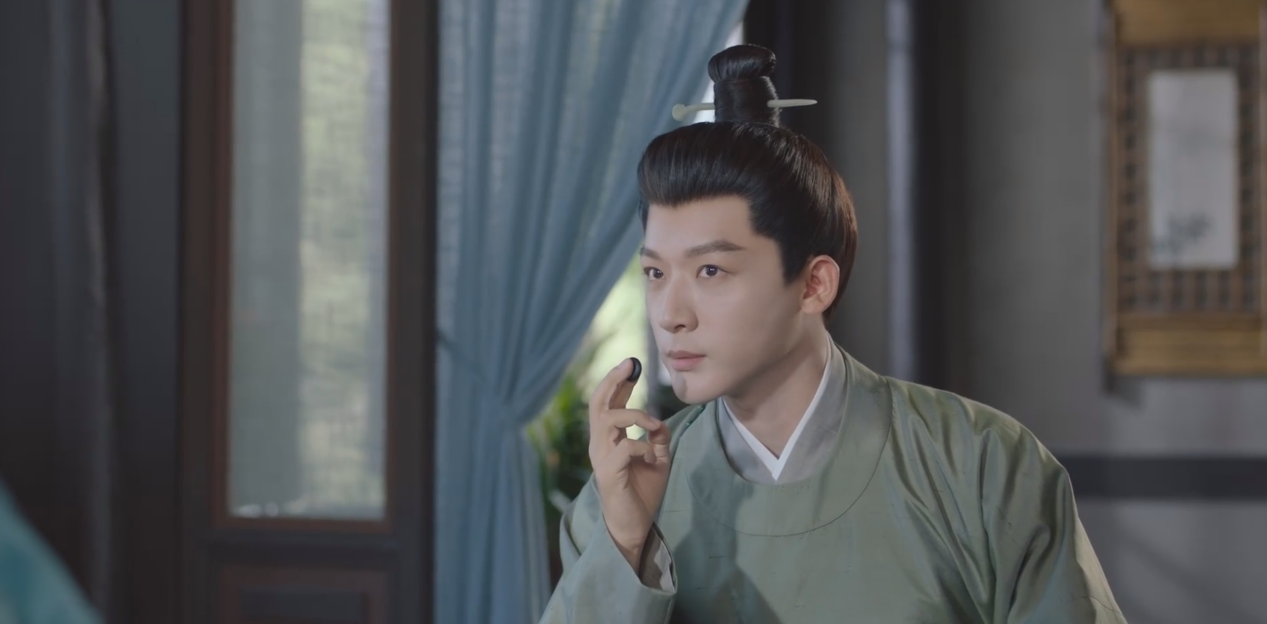
Cui Xingzhou in the novel, portrayed by Zhang Wanyi in the series
As they interact, Cui Xingzhou gradually develops genuine feelings for Liu Miantang, no longer viewing her merely as bait or a tool; whereas Liu Miantang, after recovering her memory, goes through a journey of anger, revenge, reevaluation, acceptance, and ultimately reconnection with Cui Xingzhou...
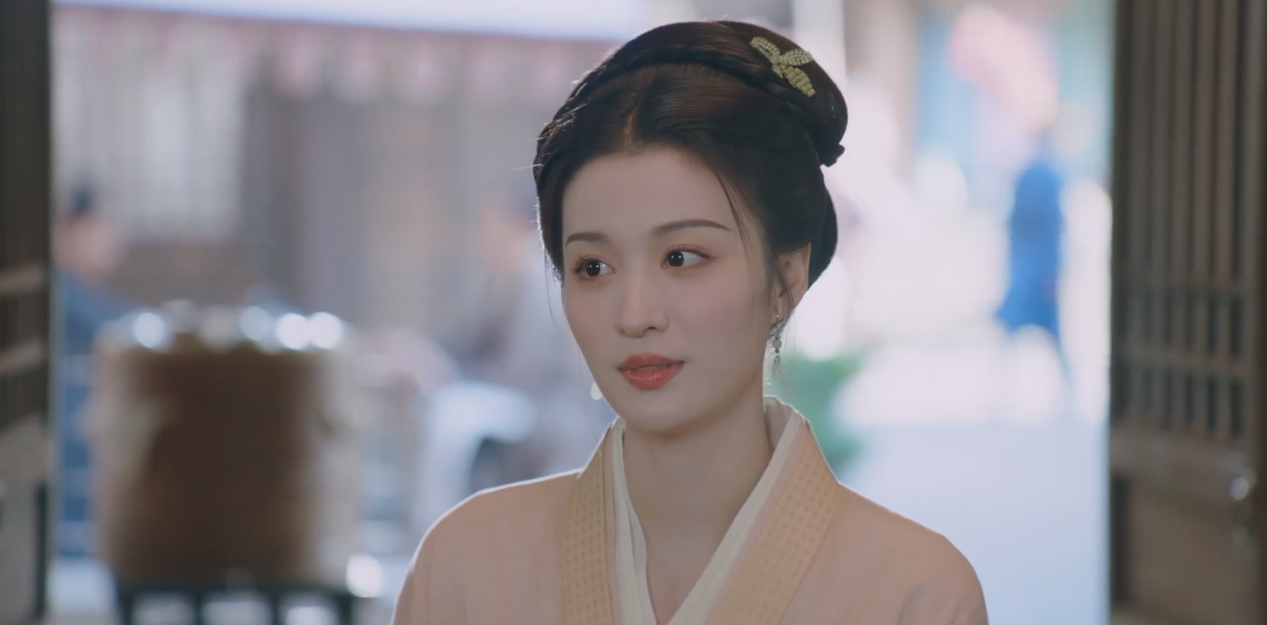
Liu Miantang in the novel, portrayed by Wang Churan in the series
Although the settings in web literature are often derived from traditional or previously utilized themes, outstanding web novel authors can seamlessly blend fresh and unique elements into these foundations. They achieve this through innovative plots, deeply explored character traits, and changed narrative perspectives, all of which provide a refreshing reading experience for the audience.
At first glance, isn't 'Jiaocang' just another 'marriage before love' story? Not quite—Liu Miantang has amnesia.
Liu Miantang's memory loss allows her to develop deep feelings for Cui Xingzhou unknowingly, based on her reliance and trust in her "husband." When she regains her memory, the emotional conflict and struggles intensify as she must reevaluate her feelings towards Cui Xingzhou, leading her into a complex web of love and vengeance, making the emotional development all the more captivating.
Another difference lies in the fact that the 'marriage' motive in the novel is not typical of idol dramas, such as contractual agreements, pretending, or collaboration; instead, it is a means of exploiting the 'enemy.' Cui Xingzhou treats Liu Miantang as part of a 'common enemy.' This setup might remind us of similar dramas like 'A Man Called God' or 'Secret,' where the male lead coldly approaches the female lead with a harsh mentality.
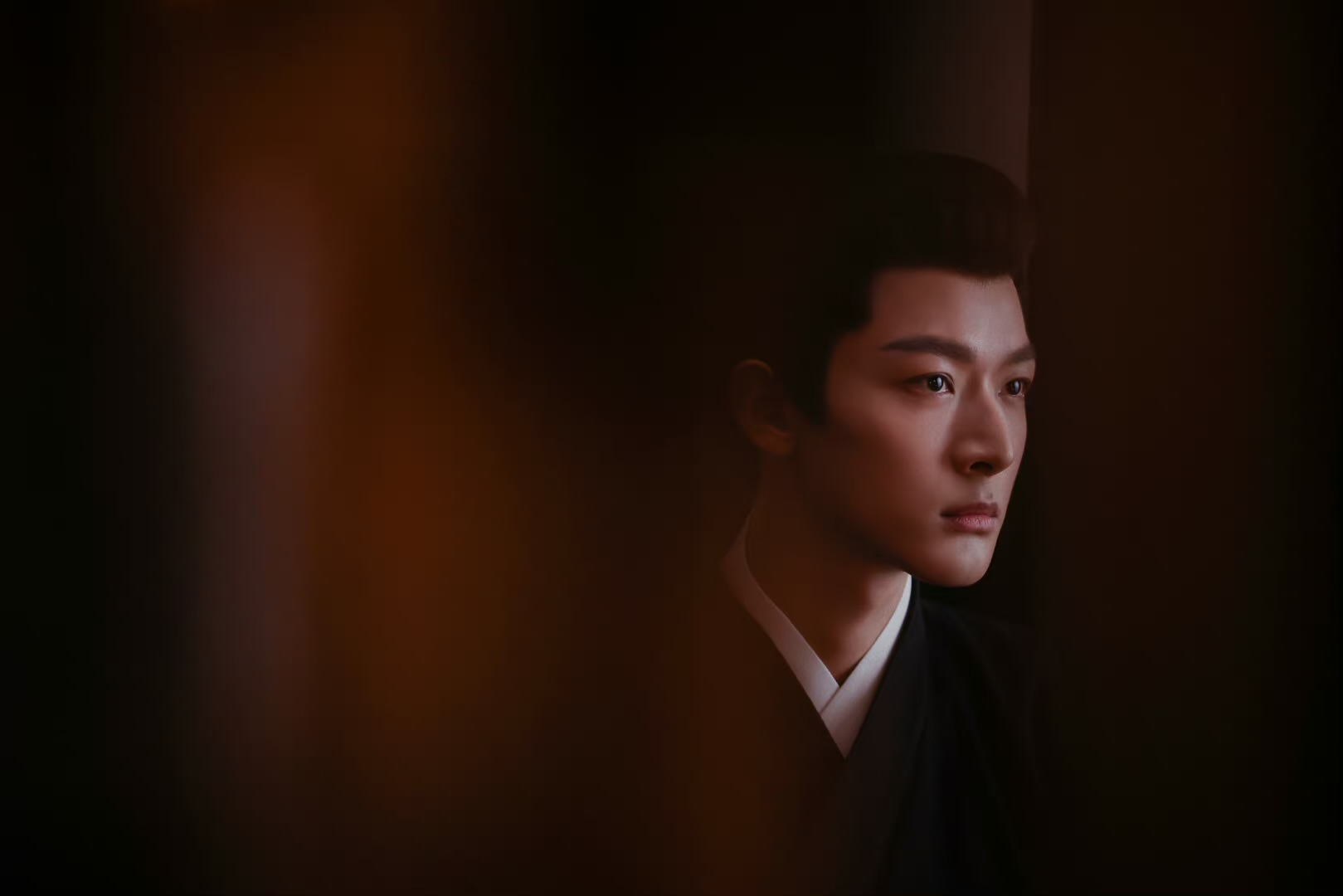
Still from 'The Chronicle of Liuzhou'
This setup greatly benefits Cui Xingzhou’s character. Initially viewing Liu Miantang as merely a tool to draw out his arch-enemy, he showcases his cold-bloodedness and cunning; however, as the narrative progresses, his genuine feelings for Liu Miantang begin to emerge, allowing readers to see his struggle between emotion and duty, rendering him more than just a ruthless strategist, but a character with emotional depth and complexity.
'Jiaocang' does not initially convey any sweetness to readers, as the dynamics between Liu Miantang and Cui Xingzhou are entirely mismatched. Amnesiac Liu Miantang strictly adheres to traditional female norms, her eyes only seeing the virtues of Cui Xingzhou, willing to do anything for him; whereas Cui Xingzhou, being a consummate strategist, feels no affection for her, treating her with cold indifference.
The reader's summary could be described as, "The female lead is in a slice-of-life farming story, while the male lead is in a political intrigue." Even the male lead's perceived 'coldness' and the plot's lack of sweetness caused many readers to find the opening chapters disheartening, questioning how such a cruel male lead could exist.
How cold is he? Take a couple of instances from the story. One: When a ruffian in town attempts to harass Liu Miantang, Cui Xingzhou, upon returning home, learns of the situation and swiftly knocks out two henchmen guarding the wall. The novel conveys Cui Xingzhou's inner thoughts: "Although this woman has lost her virtue, she entirely forgets it. For now, she believes herself to be the respectable wife of a legitimate family. If a brigand succeeds with her, she would be utterly shamed and possibly take her life, which would hinder my plan to lure out the enemy."
At this point, he considers Liu Miantang merely a "degraded woman," remaining focused on his plot against the enemy. Such character portrayal is certainly unappealing, but it aligns with Cui Xingzhou's initial characterization: a cold strategist, a typical male figure in a feudal society.
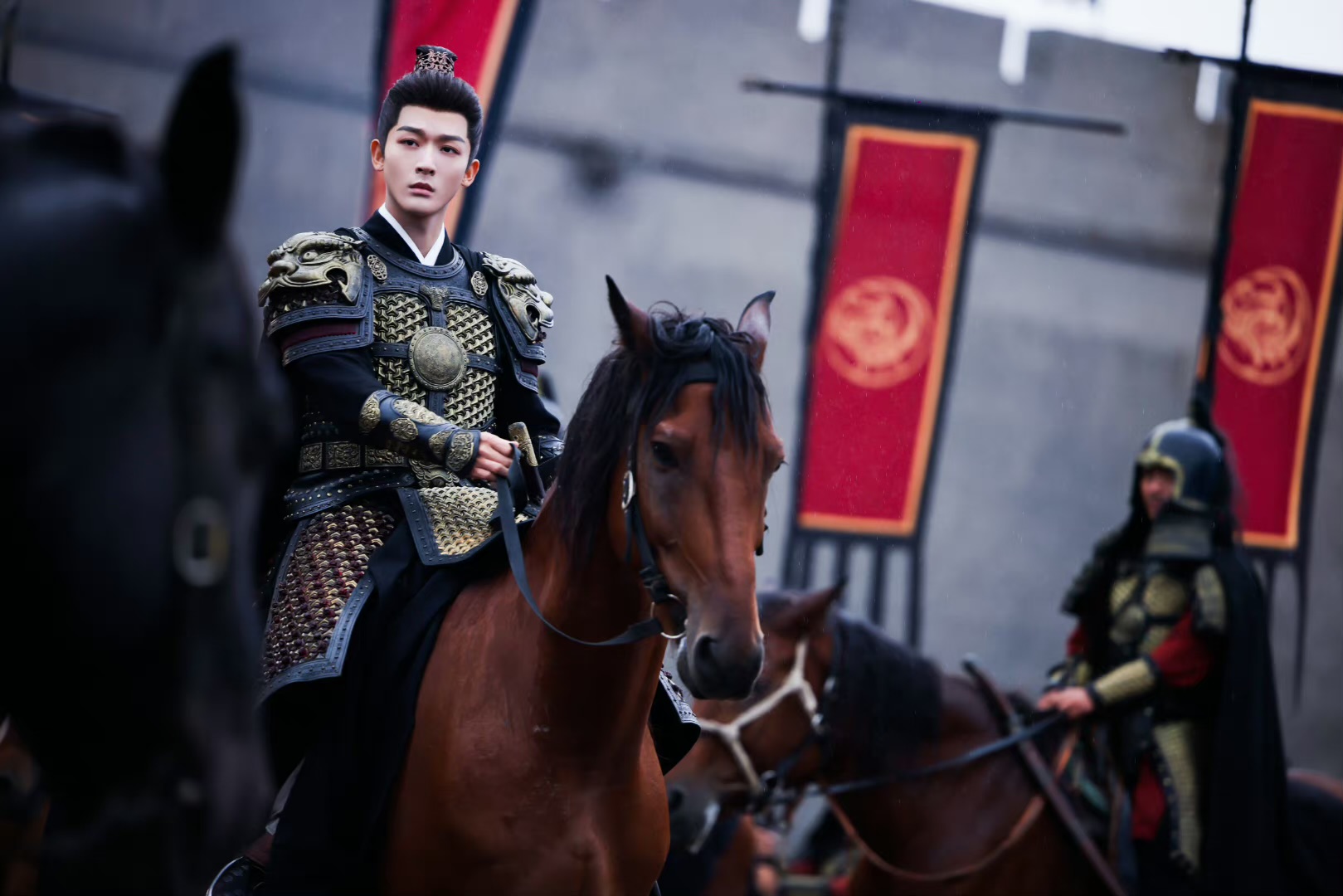
Still from 'The Chronicle of Liuzhou'
For instance, in the novel, Cui Xingzhou enjoys eating crabs. After buying fresh crabs, he finds the camp's cook's preparations too basic, so he takes the crabs back to town, intending to find a proper restaurant for a more refined cooking. Even though he has returned to town, Cui Xingzhou refuses to go home, indifferent to Liu Miantang. It is only when he unexpectedly encounters Liu Miantang in the street that one of his followers fabricates a story, saying: "The master knows the lady loves crabs, so he personally bought two baskets from the countryside, intending to have the restaurant cook them into crab roe buns to bring back home for her..."
Liu Miantang's crab dish is incredibly delicious. Just then, Zhao Quan visits and questions Cui Xingzhou about whether he has genuine feelings for Liu Miantang, yet Cui remains unfazed, as indifferent as ever, showing no concern. He treats Liu Miantang as a means to an end, even as he frequently returns home for dinner, all in a ploy to make Lu Wen wear a green hat, pretending to be intimate to lure him into a trap.
Readers might initially dislike Cui Xingzhou, but it’s evident why this superbly skilled writer could become a top-tier figure in the realm of web literature. The writer is not shackled by so-called moral views and does not pander to stereotypes by dolloping on sugar; instead, he meticulously shapes Cui Xingzhou according to his character's identity and logic. His gradual move toward emotional depth becomes even more striking.
Sweetness Over Everything
When 'Jiaocang' transformed into 'The Chronicle of Liuzhou,' Cui Xingzhou’s character underwent a fundamental shift—he is no longer the ruthless schemer willing to do anything to achieve his goals, but rather a comically "infatuated" character as written by the screenwriters. Sweetness and humor take precedence, while intrigue and strategy take a backseat.
For example, in the novel, Cui Xingzhou reflects multiple times on how beautiful Liu Miantang is: "Such a stunningly beautiful woman, if not fleeing, Lu Wen would surely not want to abandon her," and, "From any angle, Liu Miantang is a rare beauty; it is indeed surprising that Lu Wen can bear to discard her, he is a man capable of great things..."
Conversely, in the first episode of 'The Chronicle of Liuzhou,' when Cui Xingzhou hears from his subordinates that Liu Miantang is quite popular and that both men and women look at her when she walks down the street, he incredulously asks, "Why? Is she very beautiful?"
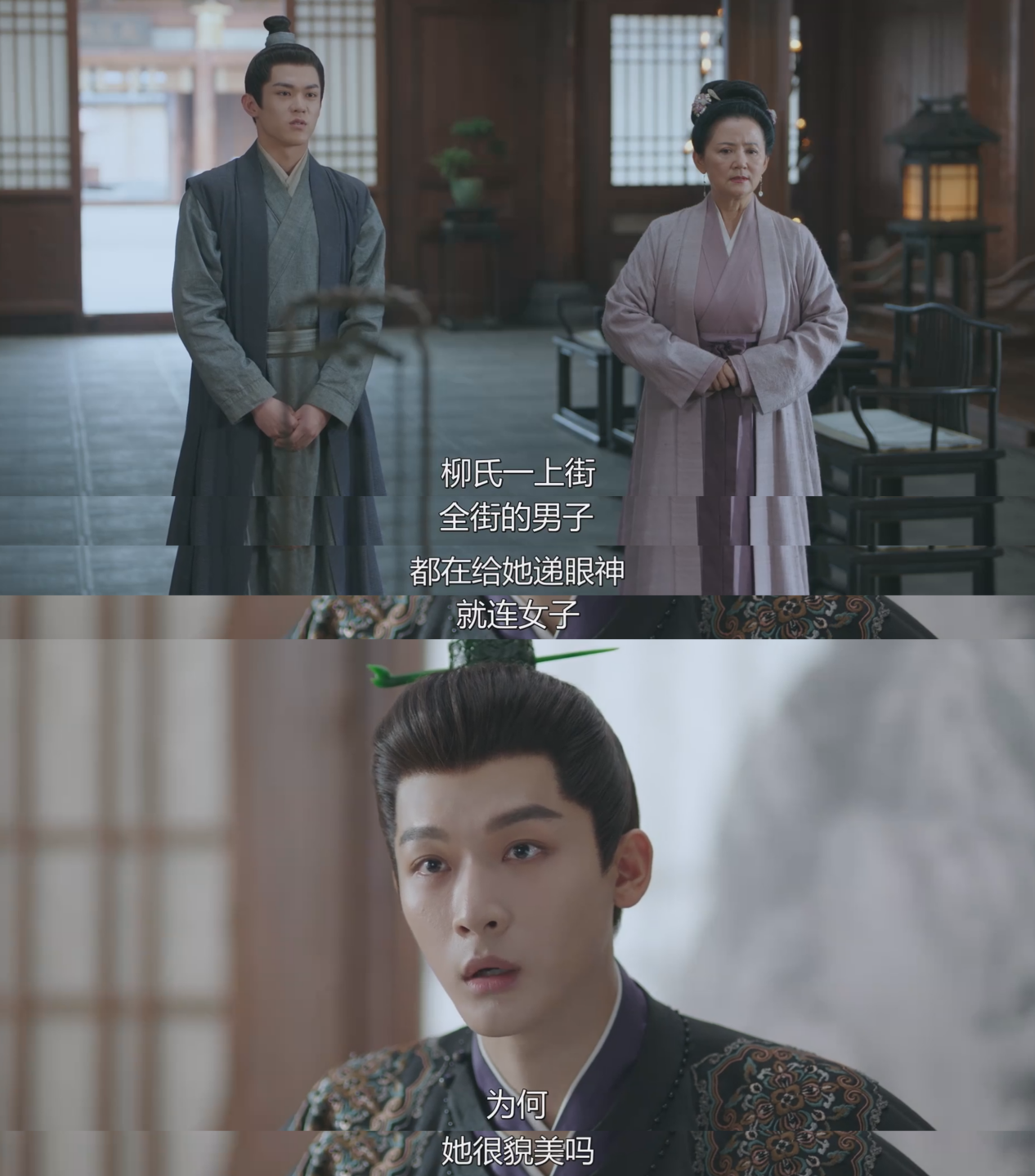
Do the writers think that portraying the protagonist as clueless makes him seem pure?
It’s no exaggeration to say that when I first encountered this scene, I instinctively thought that the writers had diminished the character. It felt painfully cliché. Why do some writers believe that making the male lead unapproachable or lacking in common sense regarding beauty portrays him as more “pure,” “innocent,” or “charming”? No, such “dumbed-down” portrayals come across as disingenuous.
Certainly, the decline is not limited to this. From the very first episode, Cui Xingzhou begins to show "sympathy" for Liu Miantang; by the second episode, the writers let Cui Xingzhou display a "comedic" side, admitting in front of Liu Miantang, "I am just a useless dandy" … Does this still make him a scheming strategist? The writers seem to have turned Cui Xingzhou into a lovesick, clumsy teenager.
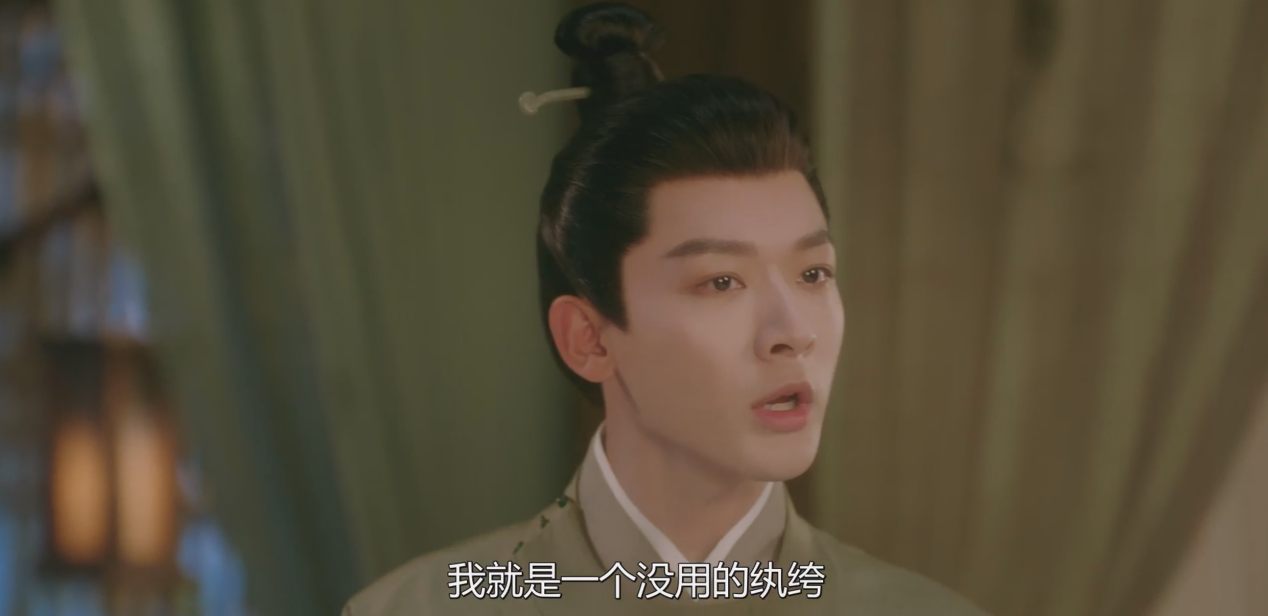
Cui Xingzhou portrayed as a "comedic fool"
This makes his occasional schemes and observations appear disjointed (like a high schooler pretending to be an adult), as most of the time he embodies a common archetype found in idol dramas—'the CEO who’s a bit too domineering.' For example, he shows childish jealousy, pouting, or exhibits some clumsy behavior to attract Liu Miantang’s attention, unwittingly falling into love, leading him to even argue with neighbors over her; or his unconscious possessiveness and jealousy manifests when he sees Liu Miantang interacting with other men—he cannot bear it; and later, the trope of 'chasing after his wife' manifests in various childish, domineering behaviors...
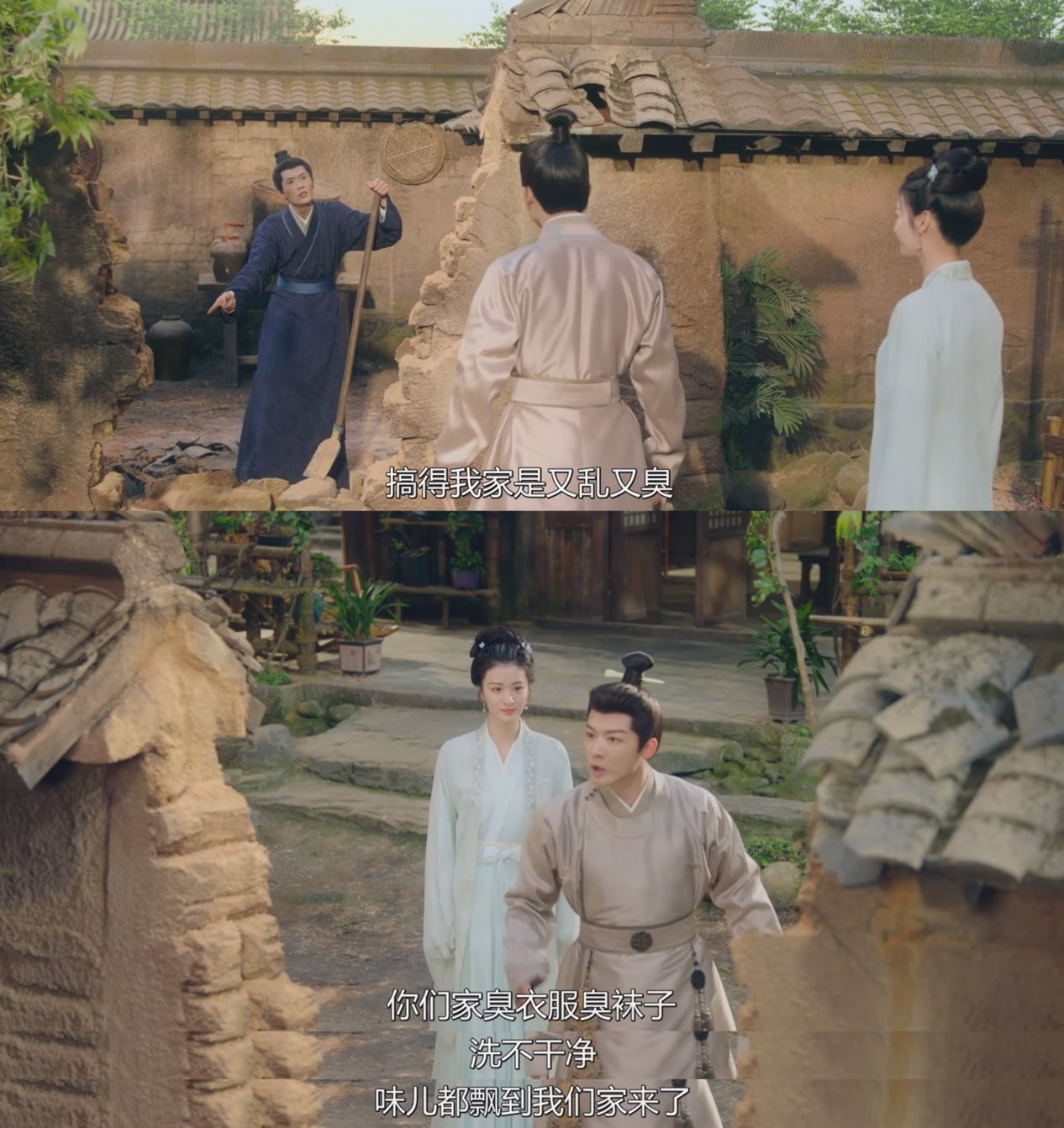
Cui Xingzhou argues with neighbors
Beyond the new comedic sweet moments inserted, various originally icy scenes from the novel have been infused with sweetness. For instance, as previously mentioned, when
